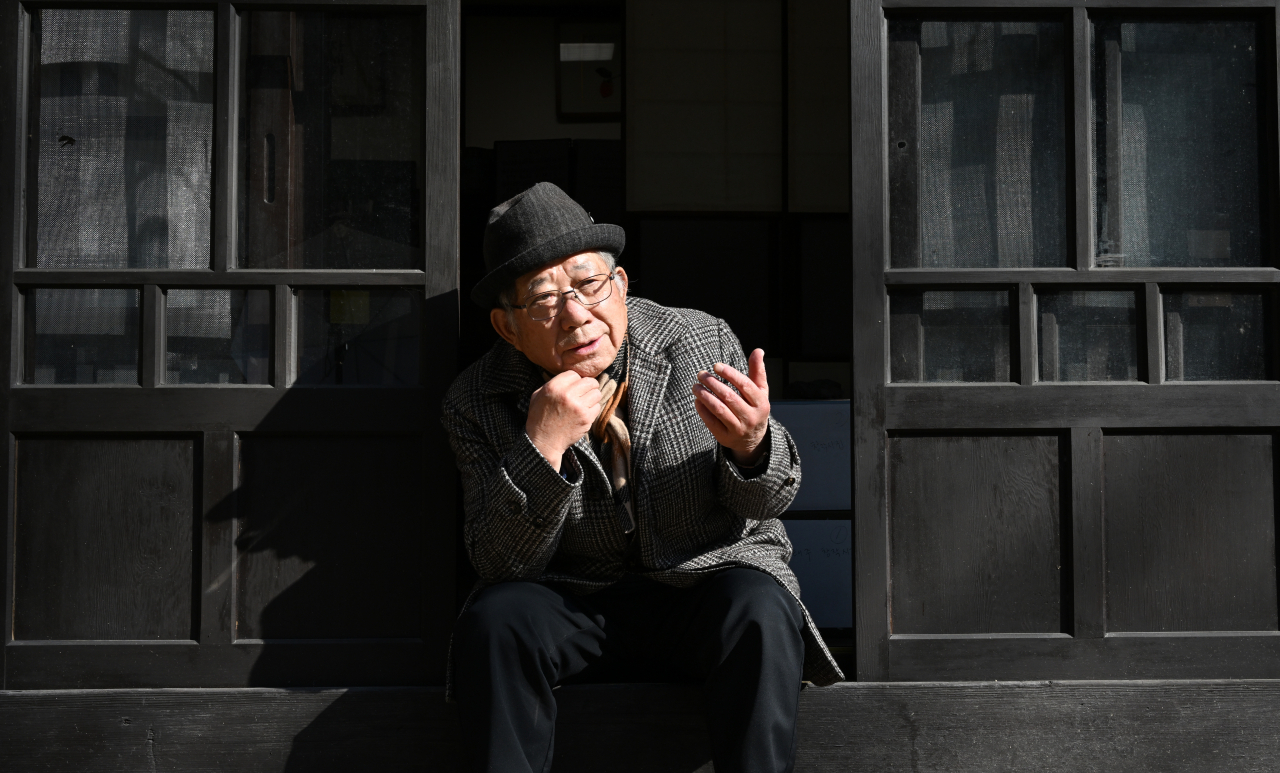 |
Poet Na Tae-joo poses for a photo during a recent interview with The Korea Herald at Gongju Pulkkot Literary House in Gongju, South Chungcheong Province, earlier this month. (Im Se-jun/The Korea Herald) |
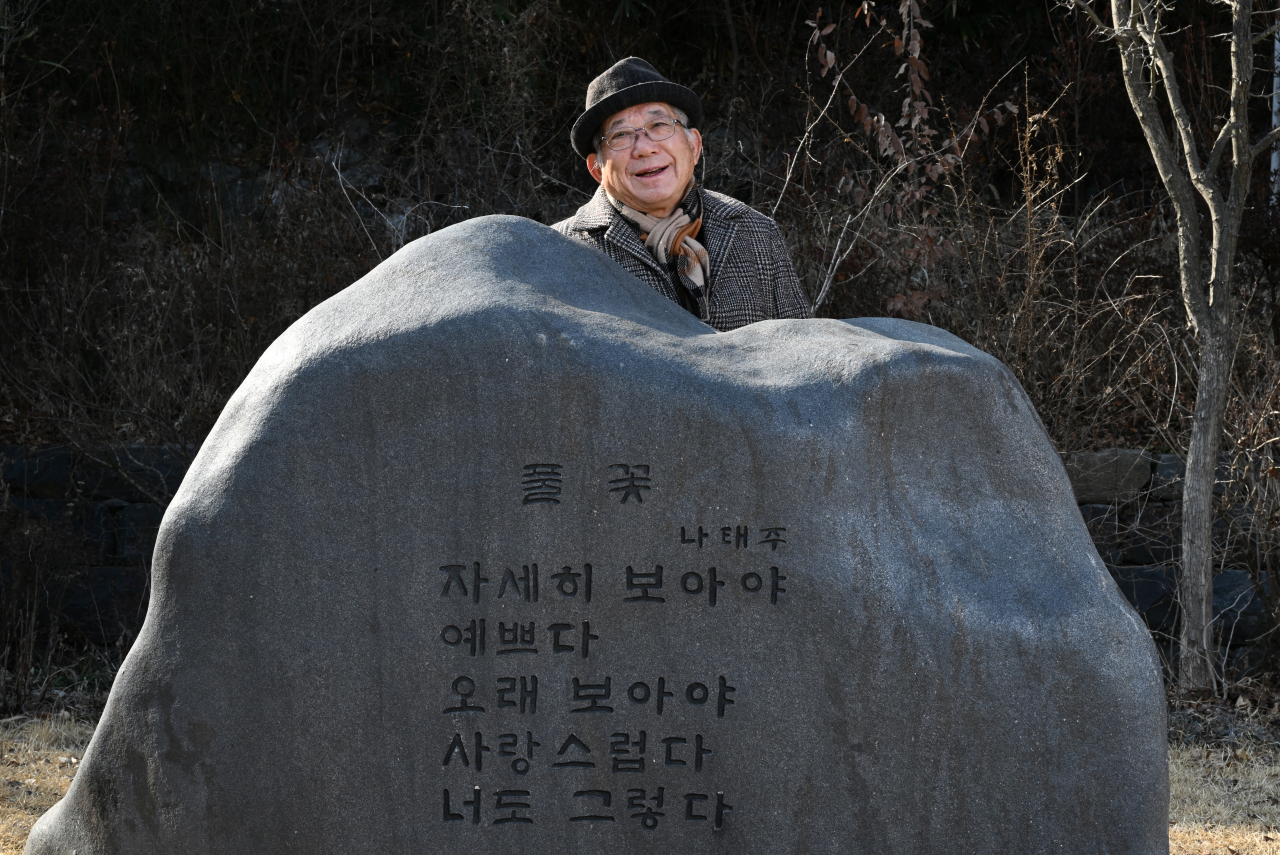 |
Poet Na Tae-joo poses for a photo during a recent interview with The Korea Herald at Gongju Pulkkot Literary House in Gongju, South Chungcheong Province, earlier this month. (Im Se-jun/The Korea Herald) |
GONGJU, South Chungcheong Province -- Walking around the small garden surrounding the Gongju Pulkkot Literary House, poet Na Tae-joo delights in the sight of tiny buds sprouting through the soil.
Sitting in the back garden of the Literary House, basking in the February sunlight, Na talks about language and poetry with The Korea Herald.
“The word ‘sunshine’ (byeot, in Korean) sounds as if it came from afar and stopped here, whereas the word ‘star’ (byeol) has a flowing feeling. It came from one side and flows to the other,” Na says
“I’m talking about the sound. People don’t think about sound when they talk, but poets have to think about language and sound," Na notes.
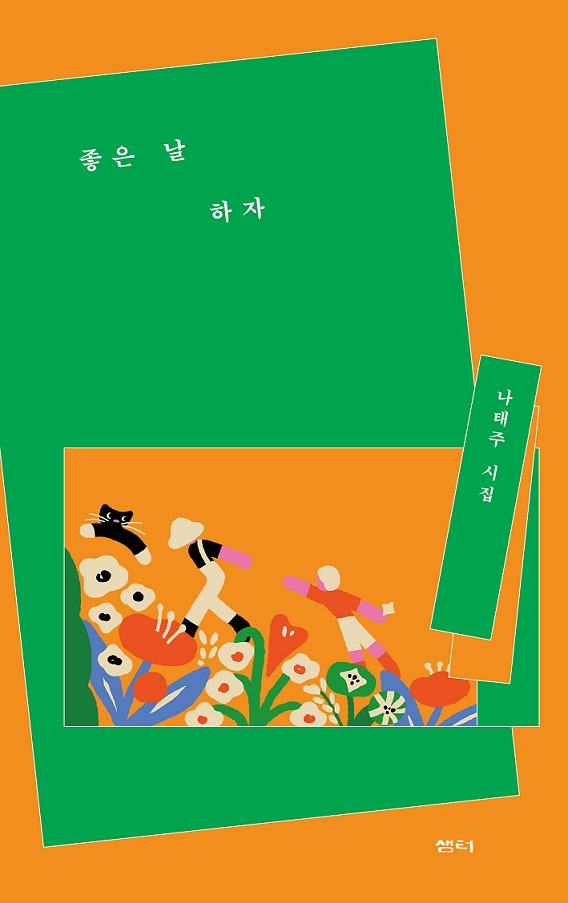 |
Na Tae-joo's 50th poetry collection “Let’s Say It Is a Good Day” (Samtoh) |
Na has published a new collection of poetry almost every year since his first volume back in 1973, culminating in his 50th poetry collection, “Let’s Say It Is a Good Day,” that was published in January. The poems in his latest collection were written from August 2020 to October 2022.
“I write poetry but it seems poetry also writes me. Poetry is completely different from prose, which is written for a purpose, a need or a demand,” Na says over a cup of tea. “Humans have a spirit and it’s our inner spirit that creates poetry.”
Na's poems are known to resonate with readers across generations.
Na’s “I See You Like I See a Flower” has been the most-sold poetry collection over the past 10 years -- from 2012 to 2022 -- according to Kyobo Book Center, the biggest bookstore chain in Korea. Celebrities including RM and J-Hope of BTS, Taeyeon of Girls' Generation and actor Song Hye-kyo have picked Na as their favorite poet.
Communication is the most important thing, Na explains. “I talk to people with my poems and they responded to me poetically. I’m not ignorant of their feelings and wishes. … I wrote poems like confessions, and they (readers) held my hand. I think this is communication,” he says.
Na is no solitary poet and he does not limit himself only to communication through the written word. He gives lectures, holds book signing events and even hosts book discussions -- he is eager to talk to people.
“It’s not easy to talk at the events (at this age). But that doesn’t mean you don’t do it. Your poetry and confessions now need to match young people’s feelings. In other words, I need to understand the feelings of young people so they can understand mine. It is a two-way street,” he says.
 |
"Today You are a Flower" (left) and artist-illustrator Shin Sun-mi (Mermaid) |
Na's communication doesn’t end with his readers. Na has actively collaborated with other artists, expanding his literary repertoire to paintings and music.
In January, Na published a poetry collection "Today You are a Flower," featuring drawings by the artist-illustrator Shin Sun-mi.
“I came upon Shin’s drawings a few years ago and loved them -- I loved the sensibility and emotions of the art,” Na says, mentioning that he cried after reading Shin’s picture book, “Ant Fairy's Gift.”
“One publisher proposed publishing my poems and Shin’s drawings together. I was surprised that someone else had felt the similar energy in our work.”
Na also published a poetry collection in collaboration with actor Lee Jong-suk in December 2017, a collection of poems and drawings with Yura from Girl’s Day in December 2021, and a YouTube project with singer-artist Solbi in 2021. He wrote prose after reading the lyrics of BTS’ songs and published “Poems for small things” in 2022.
“The power of these young Hallyu stars is amazing. I never thought my poetry would be translated into other languages,” Na says.
His poems have been translated and published in Japanese, Chinese and several other languages. The English edition of “I See You Like I See a Flower,” published in 2022, is a collection of Na’s most popular poems including the “Grass Flower.”
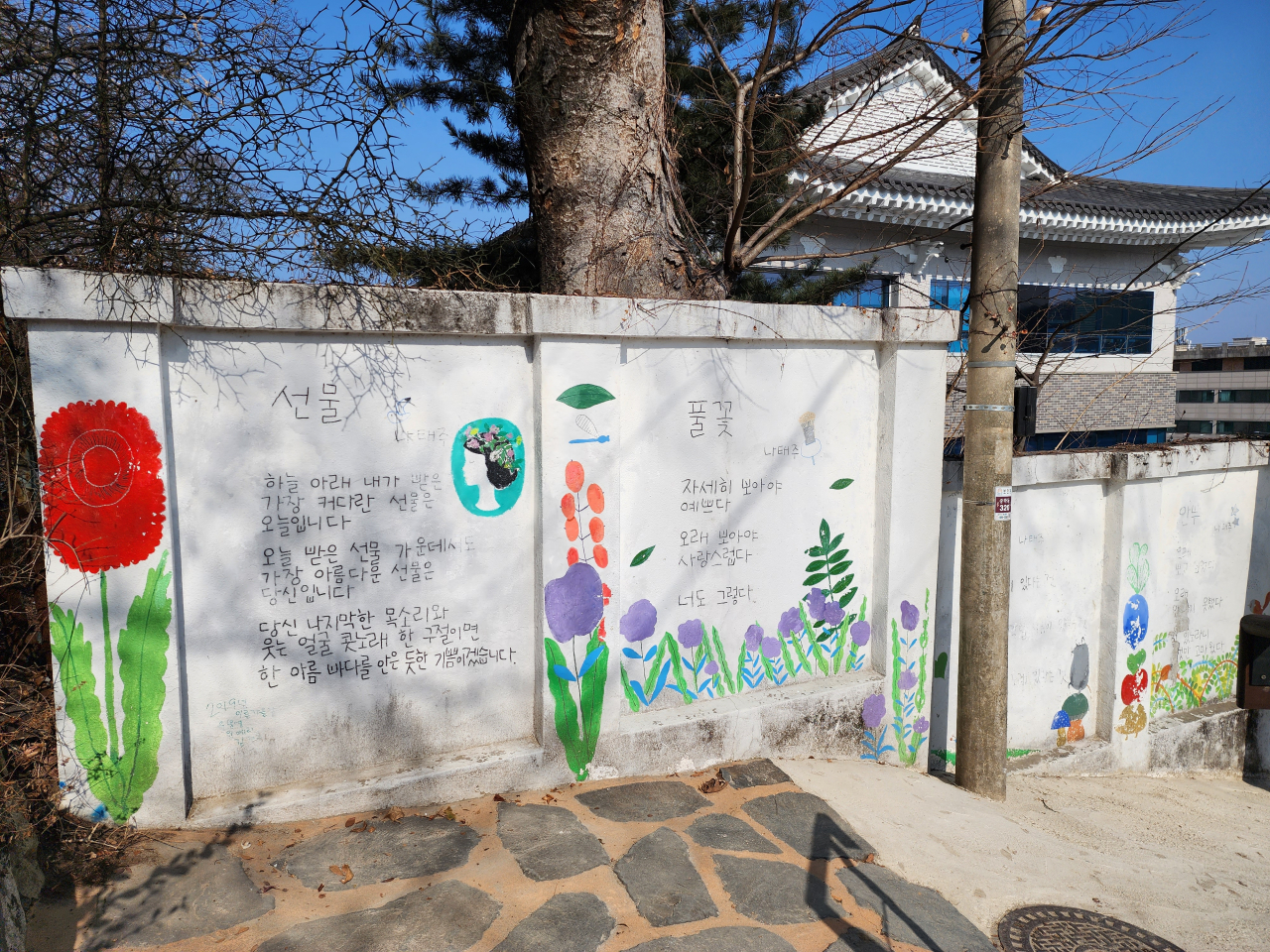 |
Poems by Na Tae-joo are on display around Gongju Pulkkot Literary House in Gongju, South Chungcheong Province. (Hwang Dong-hee/The Korea Herald) |
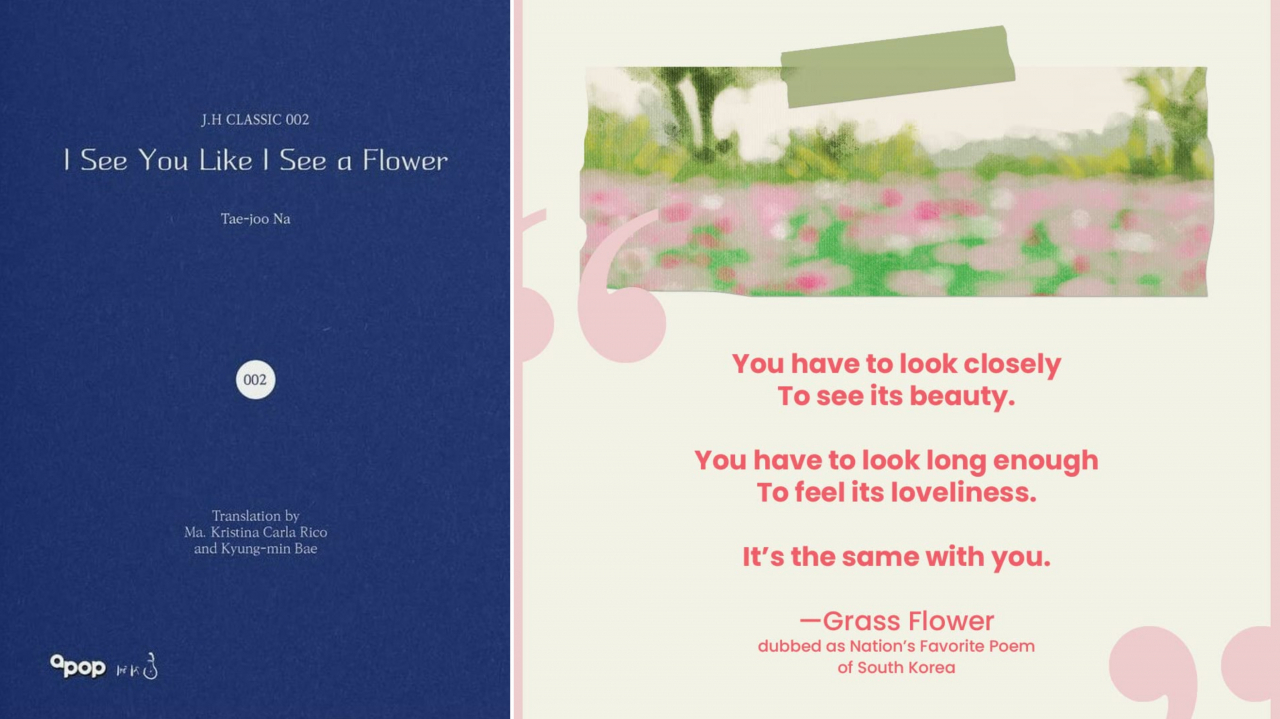 |
The English edition of “I See You Like I See a Flower” (left) and "Grass Flower" by Na Tae-joo (Adarna House) |
“A surprising thing is that these days many foreigners seem to read my poems, not just as translations, but in Korean as well. Last time, a potter from Denmark came up to me and said she knew me,” Na says with a laugh.
“I always say writing poetry is like picking up jewelry abandoned on the streets,” Na adds. “It’s like a discovery. Someone threw it away not knowing it was a jewel. But I pick it up and give it back to them and say ‘this is the jewel you threw away.’”
Looking around the Literary House, Na is lost in thought.
“It’s now time for me to sort things out like a farmer -- I need to reap the grains and see what are grains and non-grains. I’m close to 80 now.”
“I’m hoping for the Literary House to be a cultural center where tourists and locals can come and read poems, recite and listen to poems, and have a cup of tea,” Na says, adding that a piece of literature is completed only when the readers appreciate it.







